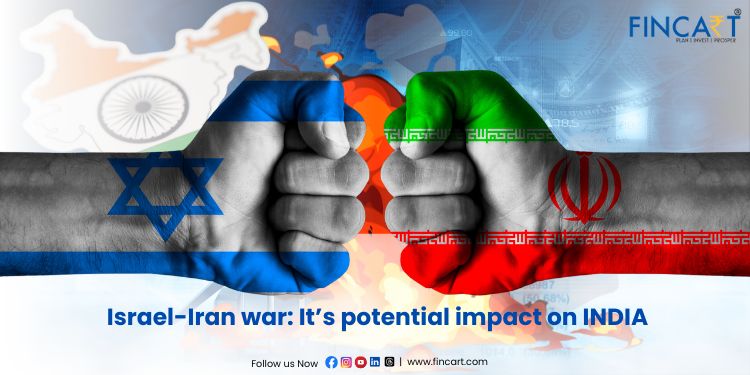Geopolitical tensions in the Middle East surged as Iran launched over 300 drones and missiles targeting military installations in Israel on Saturday night. This retaliation followed a suspected Israeli assault on Iran’s consulate in Syria on April 1. If Israel further escalates or Iran does another round of attacks, it is highly probable that it could impact India and its economic interests. Though the full extent of the impact remains uncertain at this point.
India has maintained strategic ties with both Iran and Israel – for decades, skillfully balancing between the two sides. However, if the conflict escalates further, it could become increasingly challenging for India to maintain its ambivalent position.
Historically, the market does correct immediately but only to deliver substantial positive results after the dust settles down. If we look back at the Kargil war, the Iraq war or the recent Russia – Ukraine war. The market has delivered positive returns.
Here are some potential areas where its impact may be felt:
1. Peace and security
Firstly, while there are approximately 18,000 Indians in Israel and 5,000-10,000 in Iran, a much larger population of around 9 million people from India reside and work in the Gulf and West Asia. Any further expansion of the conflict could jeopardize the well-being of this sizable Indian community, emphasizing the urgent need for diplomatic efforts to mitigate risks and ensure their safety.
2. Oil prices
A conflict between Iran and Israel could disrupt oil production and supply chains in the Middle East, a key region for oil production.
Concerns over India’s oil imports may arise, especially with crude oil prices projected to soar to $100 per barrel in the event of escalating tensions between Iran and Israel. As the world’s third-largest consumer of crude oil, with approximately 80% of its crude oil needs being imported, India is particularly susceptible to any fluctuations in oil prices, which could have significant economic ramifications.
3. Current Account Deficit
Historical data shows that there is a high correlation between oil prices and the current account deficit (CAD). As the average oil price increases, the current account deficit widens. Research by economists has shown that the CAD/GDP ratio increases by 0.5 percentage points for every $10 per barrel increase in crude oil prices.
4. Warning bells for rupee
Given that India settles its oil imports in dollars, a surge in oil import expenses can drive up demand for dollars, potentially depreciating the rupee vis-à-vis the dollar. The weakening rupee makes FII exit from the market or stops FII inflow into the equity market.
What should investors do under such a situation?
Pre-War Portfolio Rebalancing:
Any war situation brings uncertainty; this uncertainty adds to market confusion and volatility. Much before the market went into war we had cut our exposure in the Mid and Small Cap part of the portfolio thereby reducing risk. We increased the allocation towards Flexi Cap that has higher allocation to Large Cap stocks.
We had increased allocation to Gold either directly or via Multi Asset Funds.
Further, after booking profit we triggered a systematic transfer plan into equity immediately without attempting to time the market.
The portfolio is well positioned not only to ride the volatility but also take advantage of the increased volatility.
Going Forward:
Long Term Investors stay committed:
At the current point in time, the extent of escalation of the Israel-Iran conflict and its eventual outcome remains unclear. Having said that, since India is not directly involved in the conflict and maintains amicable relations with both nations, the impact on India might not be as severe, aside from the substantial effect on crude oil prices. Given India’s resilience and diversified economy, it should be able to withstand these challenges.
Further, this event in the Middle East may not be significant enough to cause a downturn in the markets. Therefore, investors are advised to stay committed to their long-term investment objectives. Historical data indicates that despite occasional disruptions and volatility caused by past wars, markets have generally shown resilience and continued to rise over time.
Short Term Investors can reduce the risk:
For those with short-term goals or nearing a timeframe of 1 to 2 years, it might be prudent to consider shifting towards safer investment options such as debt or bonds, offering fixed returns. This approach can help mitigate potential short-term market fluctuations and provide more stability for achieving immediate financial goals.




